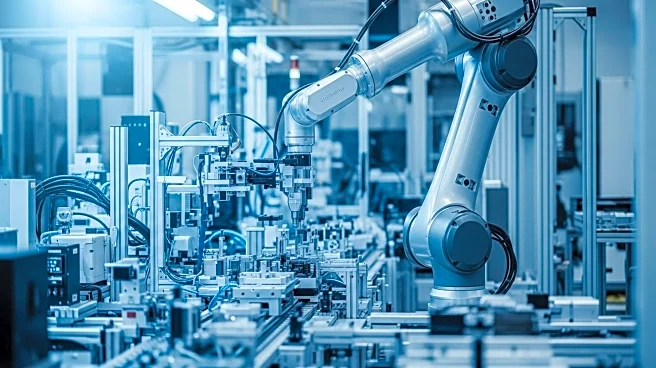What's Happening?
The manufacturing industry is experiencing significant shifts that are expected to reshape sales strategies by 2030. Key trends include the rise of algorithmic sales, regional supply chain rewiring, long-term partnerships, sustainability priorities, and increased production flexibility. AI-driven logistics and regional sourcing are becoming more prevalent, driven by buyer demands for reduced risks from global disruptions. Manufacturers are also transitioning from one-off sales to recurring revenue models, emphasizing sustainability and carbon footprint in procurement decisions. The adoption of robotics and AI in production is enhancing flexibility and responsiveness.
Why It's Important?
These megatrends highlight the evolving landscape of manufacturing sales, where traditional practices are being replaced by data-driven strategies and sustainability considerations. Companies that adapt to these changes stand to gain competitive advantages, as they can offer faster, more reliable, and environmentally friendly solutions. The shift towards regional sourcing and recurring revenue models reflects broader economic and societal shifts, including increased focus on resilience and sustainability. Manufacturers that embrace these trends can improve their market position and meet the growing demands of consumers and regulatory bodies.
What's Next?
Manufacturers are likely to continue investing in AI and robotics to enhance production flexibility and responsiveness. As regional sourcing becomes more prioritized, companies may seek to establish local partnerships and facilities to meet buyer demands. The focus on sustainability will drive further innovations in carbon footprint reduction and environmental impact reporting. Sales teams will need to adapt to these changes by integrating AI insights and sustainability metrics into their strategies, ensuring they remain competitive in a rapidly changing market.











